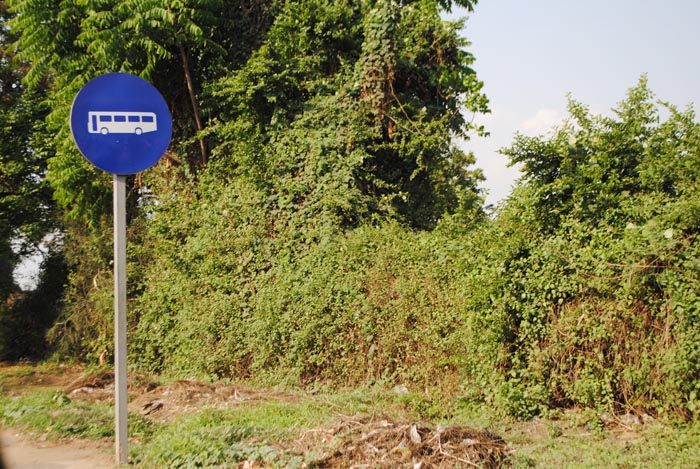Despite the law that prohibits the breeding of domestic animals in Bujumbura City, it still occurs.-By Lorraine Josiane Manishatse
In 2006, the Bujumbura City Council adopted a law prohibiting the breeding of domestic animals in Bujumbura City. Since then, a lot of people who practiced livestock breeding were obliged to move their livestock outside the city borders. Unfortunately, the law is not fully respected. This becomes clear when looking at Ngagara military camp, where they still practice pig breeding. The raising of pigs is annoying the public as it releases a bad smell; it is therefore increasingly bothersome that illegal pig breeding is practiced in Ngagara, very close to the Sodeco bus stop, a public place highly frequented by different people.
Nobody wishes to spend even one minute at Sodeco bus stop. “Leave the bus quickly, don’t you feel something strange here?” the bus conductor hustles the passengers who are getting off the bus. At the same time other passengers try to plug their noses.
“This place is annoying. When I arrive here, I feel like vomiting because of this bad odour. What is the responsibility of our local leaders? This can cause us illnesses”, complains Espérance Niyonzima, a habitant from Mutakura.
People living around Ngagara military camp indicate that they are victims. We are afraid that we have already contracted diseases related to respiratory pathology. “There is no way to escape this. For at least two years these pigs have been raised in this place. I worry about my little children who breathe polluted air”, regrets a habitant of Ngagara.
Iwacu has contacted Ngagara military camp, but they didn’t want to respond. As far as the Bujumbura City Council is concerned, spokesman Kazatsa Candide indicates that the decision to stop breeding within the city border was taken with the aim of keeping the capital clean. “Even in other countries livestock breeding in cities is prohibited”, she explains. She denies knowing about Sodeco bus stop and the Ngagara Military Camp. “Normally, we collaborate with local administration, if such cases are identified, they resolve them themselves or they ask us to act. But up to now, we haven’t received any complain about it”, she says, adding that she will look into it.




















 IWACU Open Data
IWACU Open Data

